Album Reviews
Review: Tyler, The Creator – Goblin
Tyler, The Creator – Goblin
Released: May 10, 2011
Label: XL Recordings
Purchase: iTunes | Insound | Amazon
Fame is a rather unfortunate phenomenon, an idea that rapper Tyler, The Creator certainly understands. The past few months have been a whirlwind ride for Tyler and his Odd Future friends, from Tyler and Hodgy Beats’s fear-inducing performance on Jimmy Fallon to the formation of the group’s own Odd Future Records record label. Goblin, Tyler’s first official release on a record label, has been surrounded by an incredible amount of hype, blowing up the blogosphere and getting Tyler, as he puts it on the first song, “cosigns from rappers that I don’t even like.” This hype and the young rapper’s sudden exposure to fame undoubtedly affected the creative process Goblin, but is it for the better?
Unfortunately, no. Although Goblin features a much-improved Tyler – in terms of both lyricism and storytelling – the fame that Tyler is dealing with hinders the album and restricts his creativity, causing the album to fall well short of his first release, Bastard. Goblin, to put it simply, is weighed down by the burden of matching the massive hype and pressure surrounding it. In the days of Bastard, Tyler made music for himself, something he has stated in the past and again brings up on opening track “Goblin”, but now, his music is no longer just for him; whether he likes it or not, he has become a sort of cult hero and his music is as much for them as it is for himself.
His fans aren’t the only ones listening to his music, however. Because of his naturally dark subject material, Tyler is forced to qualify his lyrics, spending a large chunk of the album pointing out that his stories of killing and misbehavior are in fact stories. On “Radicals”, Tyler opens with the lines “Don’t do anything that I say in this song. It’s [expletive] fiction. If anything happens, don’t [expletive] blame me, white America.” For all intents and purposes, Tyler can be compared to a young Eminem, albeit one who is way more apologetic.
Apologies, precautions, and qualifications aside, the lyricism on Goblin shows a natural progression from the days of The Odd Future Tape, Bastard, and even last year’s Radical. He’s still an angsty, obsessed teenager with numerous problems and his favorite target is still his missing father. The one problem, however, is how erratically hit-and-miss his lyrical style can be, leading to the inconsistency of the entire album, one of the main flaws of the album. Goblin contains a few very good songs, but also a handful of very bad ones.
When Tyler is on his A-game, he is, in fact, a “walking paradox.” As Wolf Haley, he spins tales of misogyny, juxtaposing with Tyler’s vulnerability in his personal search for love; Wolf Haley commands his “Wolf Gang” followers to revolt against everything, while Tyler worries that people may blame him for others’ wrongdoings. The only problem is, cringe-worthy moments like the muddled “Radicals”, the utterly boring “Fish”, the swag-rap tribute “Bitch Suck Dick”, and the incredibly tedious posse-cut “Window” weigh down the album, especially due to the album’s length — 74 minutes of Tyler’s minimal beats, variety of voices, and Dr. TC-framed-dialogue.
Goblin is essentially and fundamentally very similar to his first album Bastard, featuring Tyler discussing his life problems with his counselor Dr. TC. The production is also incredibly similar; Tyler’s never been lavish with his beats, electing to take a minimal, jarring style similar to that of his idols The Neptunes. Unfortunately, his beats begin to bore as the album drags along, showing that Tyler still has plenty of room to grow. To put it simply, his other beats pale in comparison to the masterful, eerie beat of “Yonkers”.
Goblin, in essence, is a strong effort by the nineteen-year-old rapper. He provides an ominous yet introspective look into his life, showing that he is not entirely as indestructible as he seems. While it may not have lived up to the hype, Tyler and Odd Future are still breaking new ground with Goblin, building a huge following of extremely dedicated and loyal fans who will no doubt eat this release up.
6.2
Standout Tracks: “Yonkers”, “She (feat. Frank Ocean)”, “Tron Cat”, and “Golden”
Review: Panda Bear – Tomboy
Panda Bear – Tomboy
Released: April 12, 2011
Label: Paw Tracks
Purchase: iTunes | Insound | Amazon
Most finely tuned machines are beheld without conscious awareness of the intricacies and technical attention that has been involved in their construction, and their users blissfully ignorant in their expectation of service. Only once exploded is it apparent that the functions these machines serve are enabled only through the purposeful arrangement of all component parts toward an intended function. We become conscious of the fact that these units, complete and unassuming, are the result of a multiplicity of tiny mechanisms interrelating, communicating, affecting one another to produce a wider experience that is elaborate in its execution but impressively focused in delivery. The next, subsequent, realization is that this construction took skill – immense skill – and most of us would be ill-equipped and unable to create anything like it.
In this regard, Noah Lennox’s (Panda Bear)Tomboy is the musical performance racer of finely tuned machines.
In today’s alternative music scene, experimental electronica albums are a dime a dozen – often eventuating to be, ironically, hackneyed in their pursuit of nuance and originality. Lennox, of Animal Collective renown, is no bandwagon-hopper. Over the last eleven years and eight releases he and his Animal Collective comrades have been trailblazers of trip exploring the frontier of freak, with a steady stream of Lennox solo work supplementing their catalogue with characteristically hazy, washed out experimental electronica under his moniker Panda Bear.
This is electronic music, but not in the typical sense. There are no massive, tacky bass drops in Tomboy – any crescendo is supported by lavishly layered samples and loops. There is an almost classical sensibility in Lennox’s approach to electronic music, perhaps telling of his childhood background in the cello and piano. New sounds are introduced in concordance with one another and with a long amplitude attack and as a result the tracks tend to feel painstakingly created rather than a cobbled together graduation leading to a single cheap thrill. Songs are dynamic; some tracks begin and end in completely polar genres (“Last Night at the Jetty” meanders through ambience and chamber pop on its transition to rambling freak-folk).
Tomboy is drenched in distortion. Fuzz soaks sharp, bold loops with a softness that subdues them. The use of reverb contains the album’s sound, envelops otherwise domineering musical aspects (the percussion in “You Can Count on Me”) and wraps them in a softness that consolidates into a single musical experience what is essentially a collection of competing loops. The album is also almost exclusively poly-phonic – rarely do we experience abate from swirling, pulsing noise, which lends to the uncommon moments when the fuzz is stripped back a striking sense of clarity.
Individual songs seem to have no message independent of the album, and derive their meaning from their function/position within the record. On an intra-track level the songs blend into one another, to the extent that during a prolonged listening session the ocean of fuzzy reverb makes to disguise the separate songs into a single cohesive experience.
There is a strangely accessible side to the record. Lennox barely alters his voice’s strained lilt throughout the album, the constancy of his vocals adding continuity between tracks – comforting in its familiarity as a friend would be in a foreign country. For listeners completely comfortable in the album’s intimidatingly unconventional sound, though, this fixed voice is occasionally mired by predictability and may stagnate by the end of Tomboy.
The album’s main shortcomings are interconnected with this same familiarity and constancy. While immediately a very rewarding and immersive album, there is little fundamental deviation between tracks (also between this record and Panda Bear’s back catalogue as a whole) and as a result it simply doesn’t stand up to repeated listens. It is an enjoyable, intricately detailed experience, but ultimately not a deep one.
Tomboy will not be Lennox’s magnum opus, nor is it genre-defying, but it is a stunningly complete album experience and proof that he is damn good at what he does best. And why shouldn’t he be? He’s clearly had enough practice.
8.5
Standout Tracks: “Afterburner” – the current popular favorite, and with good reason: a throbbing bass line and buckets of fuzz make for a track effortlessly laid-back and enjoyable.
Review: Thursday – No Devolución
Thursday – No Devolución
Released: April 12, 2011
Label: Epitaph Records
Purchase: iTunes | Insound | Amazon
When pre-release songs from No Devolución started streaming online, certain fans decried the notable change in Thursday’s sound. The band has steadily inched from intense to atmospheric since the introduction of synthesizers in A City by the Light Divided. Two albums later, the synths are now the defining part of the sound. Contrary to these fans’ response, though, this style, when coupled with their best lyrics in years, feels like a natural progression that is still a perfect fit for the band.
“No Answers” is most demonstrative of this new sound, with drums backing thick synths and only minimal, yet still effective, guitars until the chorus. The atmosphere created by these perfectly-balanced textures complements the lyrics, which give a feeling of both intimacy and reluctant distance.
More often than not, the guitars take backseat to the other instruments in general, not just the synths. The drums and heavy, active bass drive the music much more frequently than they ever used to, such as in “A Darker Forest” and the U2-reminiscent “Sparks Against the Sun.”
This is not to say that the band has completely abandoned its post-hardcore roots, however. “Open Quotes” is purely vintage Thursday, faltering only when it hits the underwhelming chorus. “Turnpike Divides” pays homage not only to their New Jersey origins, but their earlier sound with heavier guitars and the blend of singing and screaming in the chorus.
The balance between heavy and atmospheric has produced some of Thursday’s best songs in years. “Sparks Against the Sun” mixes a distorted bass line with an meaningful piano progression to create a song that’s engaging before the singing even begins. The pre-chorus is extended so listeners can bask in the music before building up with a two measure synth line, leading to a powerful chorus.
“Past and Future Ruins” begins with a minute of anticipatory guitars and atmospheric noises until the intense drums kick in. The vocals and drums carry the song until the explosive chorus, which culminates in some of the darkest music and loudest howling that Thursday has every produced. Adding to this power are the excellent lyrics, a lamentation of our increasingly artificial culture.
No Devolución’s lyrics are also an excellent return for the band, yielding some of their best since their 2001 masterpiece Full Collapse. They cover universal themes such as broken relationships and satisfaction with one’s life, such as when “A Gun in the First Act” asks, “Do you find sleep comes easy / dancing with the empty silhouette of everything?” Even when one can’t discern a specific meaning, the careful word choice almost always sounds meaningful.
In fact, the lyrics are so integral to the album that they are a necessary part of many songs. As musically wonderful as almost every song is individually, some may have a tendency to sound similar or blend together were it not for the lyrics to give each a subtle personality.
The only songs that come up short in lyrics are the musically peppy “Millimeter” and “Magnets Caught in a Metal Heart,” the latter of which is weakest in terms of music as well. For a lighter song, it doesn’t use the synths as one may expect and Geoff Rickly’s vocals sound uncharacteristically bland.
The change in style has also hurt Rickly’s vocals on the whole. He employs an atmospheric moan in many songs, even sounding similar to Deftones’ Chino Moreno in the chorus of opener “Fast to the End.” With the exception of the two songs involving screams and the beautifully raw, stripped-bare “Empty Glass,” there is a general lack of dynamic range throughout the album.
Almost anticipating fans’ response to the album, the epic closing track “Stay True” reminds listeners to not sell out, to remain who they are. Looking beneath the musical surface, the soul of Thursday has followed this advice and remained true to itself. No Devolución is an excellent, progressive step forward for a band that appeared to have their best work already behind them.
8.9
Standout Tracks: “Sparks Against the Sun”, “Past and Future Ruins”, and “A Gun in the First Act”
Review: Explosions in the Sky – Take Care, Take Care, Take Care
Explosions in the Sky – Take Care, Take Care, Take Care
Released: April 25, 2011
Label: Temporary Residence Limited
Purchase: iTunes | Insound | Amazon
It’s been a while since post-rock band Explosions in the Sky released their album, All of a Sudden I Miss Everyone, and many questions lurk through the fans’ minds: what has changed in the last 4 years, and how will Explosions in the Sky be able to create new music that is fresh and adds something new to their incredible, innovative discography? Few albums have impressed me at first listen as much as their 2003 album, The Earth is a Cold Dead Place. While Take Care, Take Care, Take Care is quite engaging on first listen, it is an album designed for repeated listens.
Drummer Chris Hrasky once said that “I think we just liked the idea of a band that there was not a leader or main songwriter, everyone collaborating and has their own say. I don’t think any of us want the sort of ‘leader role’, so a leaderless band is kind of the best option for us.” A band that doesn’t employ words must use the entire band to make sure that the music can stay radical, and Explosions on the Sky thrives on this. Everyone plays a role in each song instead of having one, main front man for the group. The band members’ technical abilities and musicianship complement each other extremely well. As critical as the guitar is used in their songs to create the melody, the drummer is just as important. Chris Hrasky utilizes his drum kit to create the entire atmosphere for each song. In the track, “Trembling Hands”, the drumming is so momentous that it is the focal point of the song.
“Trembling Hands” is the only song that utilizes vocals in Take Care, Take Care, Take Care, and it is the first time in six years that they have done this. The one and only other time they have done this was in “Day Two” on their experimental eight-day project, Travels in Constants, Volume 21: The Rescue. “Trembling Hands” is a track that is much different than the rest of the album, and discography. The singing, along with the drums, gives the band energy that has never been heard before in an Explosions in the Sky song. It is probably the most inventive song on the album.
In a few days on April 30, Explosions in the Sky will be playing at Hollywood Forever Cemetery to promote their new album, Take Care, Take Care, Take Care. Post-rock is a genre of music that is normally made to be very despondent and tragic, so playing the album at that venue will be quite fitting. “Human Qualities” seems to be a rather quiet and desolate song. However, this long 6 minute and 49 second build-up makes the last minute incredibly awe-inspiring. Explosions in the Sky does a good job of this in Take Care, Take Care, Take Care. Explosions in the Sky fabricate songs that are not only melancholy, but they also create songs that are extremely inspirational and hopeful for its listeners. For the genre of post-rock, it is not the band that always chooses the meaning of the music, but rather the listener to discover how the music impacts them. Explosions in the Sky connect their listeners to an emotional level that can sometimes never be done with words.
With the exception of “Trembling Hands”, not much has changed in this album. For a band that is so inherently inspiring to others, Explosions in the Sky does not attempt to achieve many new heights. You could probably compile Take Care, Take Care, Take Care along with their first album, How Strange, Innocence, and not notice a difference. However, this is not a problem for Explosions in the Sky. If not changing their musical direction is a problem, fans would be complaining by their second album. Explosions in the Sky seem to keep faithful to their fan base by giving their supporters what they want.
With the release of Take Care, one has to wonder what’s next for this band? For now, the band that seems to be going nowhere but up, will keep themselves playing shows alongside Arcade Fire and a countless number of festivals such as Bonnaroo and Lollapalooza.
8.5
Standout Tracks: “Human Qualities” and “Trembling Hands”
Review: The Joy Formidable – The Big Roar
The Joy Formidable – The Big Roar
Released: March 15, 2011
Label: Canvasback/ATL
Purchase: iTunes | Insound | Amazon
Do you remember that feeling you had the first time you heard the explosive chorus of “Adam’s Song”? So much passion and energy was wrought by just a few simple power chords. Although that was years ago and the magic has waned, The Joy Formidable, a three-piece band from Wales seeks to recreate that epic feeling on their debut The Big Roar and succeeds wondrously.
Although Roar is technically their debut, TJF are no strangers on the indie scene. Formed in 2007, they have gained popularity through the release of numerous singles and the mini-album A Balloon Called Moaning, not to mention a moderate amount of notoriety for having a video banned from YouTube. In fact, half of Balloon’s songs have been re-vamped for Roar, and what were good songs before have been turned into near-masterpieces, fitting in with the rest of Roar.
The band jumps right out of the gate with “The Everchanging Spectrum of a Lie,” evoking the fuzzy sounds of Silversun Pickups and The Smashing Pumpkins. Upon hitting the chorus, however, The Joy Formidable distinguish themselves from these influences. Where Smashing Pumpkins are brooding and Silversun Pickups are atmospheric, TJF have a constant intensity. The song ends with an instrumental buildup that transcends the sound of headphones or speakers, a sound that demands to be heard live.
This transcendent feeling emerges time and time again on Roar. “Cradle” is pop perfection- clapping along feels mandatory. The chorus of “Chapter 2” is such a simplistic progression, but it feels fresh and huge. “Whirring” also employs a lengthy instrumental breakdown that builds up the sound to epic proportions.
Relying on a huge sound in song after song would make them a one trick pony, but TJF is incredibly creative in their musicianship as well. They don’t write songs based on a variety of riffs, and one would think that their fuzzy sound would grow monotonous quickly, but it doesn’t. They manage to make great songs through the creative use of their simple tools.
For example, “Whirring” uses only three notes in its main line, but different accents on repetitions and the changing backing guitar chords create interesting layers. “Austere” is driven by the drum beat and bass line and has no real chorus. “Llaw=Wall” is a dualistic song, as indicated by the title. The first half is soft and atmospheric, but explodes in a wall of sound halfway through. In the midst of this, there is a beautiful, brief pause to deliver the line, “You’re the ugly truth.” A couple of verses, choruses, and a bridge rarely appease The Joy Formidable.
Another strength of the band is a charismatic, talented frontwoman. The adorable Ritzy Bryan blazes on the guitar, and her vocals are among the best in indie rock. She has a great amount of versatility in terms of both range and in the emotion of her singing.
This isn’t to denigrate the accomplishments of the other band members, though. Bassist Rhydian Dafydd takes center stage and carries songs such as “Austere” and “A Heavy Abacus.” Drummer Matt Thomas provides the consistently impressive backbone to each song and shines through especially in the furious “I Don’t Want to See You Like This” and the double-bass section in “Whirring.”
The lyrics don’t always reach the high bar set by the music and vocals. They often have a certain poetic imagery about them, but while some lines are straightforward, others are moderately baffling (“Abacus, haunting me/Abacus, watching me”).
The only other mild complaint is that a couple of songs don’t have as much strength or lasting power as others. “A Heavy Abacus” is a mid-tempo number that relies on a lot of power chords and lacks the punch of other songs. “Buoy” may have better served as a softer number to come down from the powerhouse “Whirring” right before it, but instead just feels overshadowed as it is.
These are only minor faults with an album great on so many levels. The vocals, musicianship, and big sound make The Big Roar an excellent debut and The Joy Formidable a band to watch in the coming years.
9.1
Standout Tracks: “I Don’t Want to See You Like This,” “Whirring,” “Cradle”
Review: ‘Sucker Punch’ Soundtrack
Sucker Punch Soundtrack
Released: March 22nd, 2011
Label: WaterTower Music
Purchase: iTunes | Amazon
The Sucker Punch soundtrack was released about a month ago and has generated a large amount of buzz — and has brought itself to last week’s #1 spot on Billboard’s Soundtracks chart. It doesn’t surprise me that it climbed its way there in such a short amount of time; it is genius in the fact that the soundtrack is comprised of uniquely revamped classic covers. It is true that any artist can cover a song and put some of their own flavor into it, but the cover soundtrack made for Sucker Punch is filled with amazing new renditions of songs like, “Sweet Dreams (Are Made Of This),” by Eurythmics and “Tomorrow Never Knows,” by The Beatles.
The soundtrack opens with film-star Emily Browning and her lullaby version of “Sweet Dreams (Are Made Of This)”. Right away, I was immediately impressed with her vocal talent. How many times do you find that you have the main character of a film featured in various songs on the film’s soundtrack that can actually sing them well?
Then comes, “Army of Me (Sucker Punch Remix),” with Björk featuring Skunk Anansie, remade from her 1995 hit single off the album Post that seems to be mellow throughout but ends in shrills, heavy guitar and drums.
“White Rabbit,” covered by Emiliana Torrini, seems to describe being in a surreal universe similar to the plot of Alice In Wonderland; it’s no coincidence that critics describe Sucker Punch as similar to “Alice In Wonderland, but with machine guns.”
The fourth track is one of my favorites — a high-intensity mash-up of “I Want It All”/”We Will Rock You”, featuring the rock music staple Queen with Armageddon Aka Geddy. It is a great balance of hip-hop and rock that anyone could enjoy dancing to.
“Search and Destroy” brings back Skunk Anansie in this solo track with sweet guitar riffs and more of a late ‘80s, early ‘90s punk rock feel.
One of the more noted tracks comes next — a cover of The Beatles’ “Tomorrow Never Knows,” by Alison Mosshard and Carla Azar, that sort of reminds me of “Army of Me”. This is because both tracks clock in at almost seven minutes long and have a more melodic, relaxing feel, but the tracks contrast because of the ending. Five minutes into “Tomorrow Never Knows”, the piano chimes in and then the break-down begins with heavy synths and drums.
Next, my personal favorite track of the album sweeps through. “Where Is My Mind?” by Yoav featuring Emily Browning begins the first verse and chorus with Yoav’s soft voice and then chimes with Browning for the second verse. For the second chorus, they harmonize together to produce a beautiful version of Eurythmics’ hit, and just when you think the track is over, everything speeds up to surprise the listener again; one thing this soundtrack does well.
Track eight, “Asleep,” is again performed by Browning; “Asleep” is another ‘lullaby,’ similar in style to her rendition of “Sweet Dreams (Are Made of This)”. Ballads are her strength because of her calming voice and she nails this track for sure.
The soundtrack closes with “Love Is the Drug” by Carla Gugino and Oscar Isaac, originally by Roxy Music, bringing a sexy vibe to Sucker Punch. Isaac throws soul into the track like it’s no task and Gugino reinforces that this is no ordinary cover.
8.0
Standout Tracks: “Sweet Dreams (Are Made of This)” by Emily Browning, “I Want It All”/”We Will Rock You” Mash-Up by Queen with Armageddon Aka Geddy and “Where Is My Mind?” by Yoav featuring Emily Browning
Review: The Mountain Goats – All Eternals Deck
The Mountain Goats – All Eternals Deck
Release Date: March 29, 2011
Label: Merge Records
Purchase: iTunes | Insound | Amazon
As any seasoned fan of The Mountain Goats (or “Old Goats” as they are so want to be called) will tell you, the group has always been little more than a creative vehicle for frontman John Darnielle. Diminutive and seemingly painfully suburban, he imbues his nuanced lyrics with such an unrefined emotional rawness that Mountain Goats classics like “No Children” and “Dance Music”– apotheoses on love, loss and dysfunctional relationships – manage to be in equal parts deeply personal and arrestingly touching.
By this measure, All Eternals Deck is a starkly underwhelming album. Lyrically, the album seems strained – Darnielle’s once effortlessly sinuous song writing is mired in a slew of simplistic “night/light” ABCB couplets, an unfortunate album trait exemplified in the utterly forgettable “Prowl Great Cain”. This percussion-driven romp, with its clichéd biblical reference and contrived end rhymes, is an insipidly glib experience that is regrettably mirrored in many of All Eternals Deck‘s tracks. The album is thematically unfocused as well – the record opens with an angry meditation on the meaning of freedom (“Damn These Vampires”), diverts itself briefly into an ode to love lost (“Age of Kings”) and finally arrives at a self-depreciating criticism of big-city life (“Liza Forever Minelli”). The only connecting aspect throughout the album is a pervasive sense of dread – when he’s on form, even on musically upbeat tracks (“High Hawk Season”), Darnielle’s interminably candid vocals saturate the record with malaise and foreboding.
Where the album truly comes into its own is within the function it serves for the rest of the band’s catalogue: All Eternals Deck marks the final stage of the Goats’ progression from Darnielle’s early hushed acoustic work to what is essentially an exercise in vaguely The Hold Steady-esque alt-rock. This is arguably the most obviously produced of the Mountain Goat’s albums, lending inarguably from the involvement of legendary death metal producer Erik Rutan, however the value of his influence on the record is debatable. Darnielle traditionalists will likely resent the unapologetically more accessible direction taken on the album whilst new fans will appreciate its cleanliness. Personal preference notwithstanding, the fact remains that on at least several of the tracks Darnielle’s vocals have had their sincerity buffed out by over-zealous production – gone are the idiosyncratic inflections and intimately delicate intakes of air at the end of lines that shone so clearly in past albums (Read: The Life of the World To Come). The vocal track that remains is often embarrassingly reedy and unimpressive, especially on the tracks in which Darnielle attempts to raise his voice above his typical reserved lilt and into a stirring bellow (“Birth of Serpents”). Significantly, there is an obvious decentralization of Darnielle as the creative driving force of the band – there is a much more diverse instrumental track in the album compared to some of its acoustic guitar-lead predecessors, telling of a more involved contribution from bassist Peter Hughes and drummer Jon Wurster.
All Eternals Deck is by no means a bad album. The lyrics may not be Darnielle’s finest, but at the same time he abstains from counting off the days of the week – he is as always at the head of his contemporaries in this regard. As a typical Mountain Goats record, it takes no excessive risks but is appropriately emotive and sublimely executed. Ultimately, listener enjoyment of this album is largely dependent on their opinion of the band’s back catalogue: an All Hail West Texas purist can be expected to disapprove of the relatively weak writing and intimacy of the record. All Eternals Deck has only promising things to say about the future of The Mountain Goats, and knowing John Darnielle – we won’t have to wait long till we find out just what it entails.
6.1
Standout Track: “Never Quite Free” – triumphantly defiant, a fitting emotional climax for the album.
Review: Toro Y Moi – Underneath the Pine
Toro Y Moi – Underneath the Pine
Released: February 22, 2011
Label: Carpark Records
Purchase: iTunes | Insound | Amazon
Lovely album art, isn’t it? They say that one should never judge a book by its cover, and while it wouldn’t be entirely correct to dismiss Toro Y Moi’s Underneath the Pine on its cover alone, it is actually nice visual representation for the music: dated, a failed attempt at artistry, and generally ugly.
Quickly opening the case and popping in the CD (or eschewing the visual assault altogether with a digital copy), the listener is greeted with the aptly titled intro, “Intro/Chi Chi”. The opening fuzzy synthesizers are nearly as hideous as the album art, but after a minute, drums and bass reminiscent of Twin Shadow kick in, providing some hope for what lies ahead. Unfortunately, despite a few bright spots, much of this hope is in vain.
Pine is very much an acquired taste, and unless one already has an affinity for the muddled, retro sound that Chazwick Bundick, the man behind it all, is trying to convey, there isn’t much to like. It isn’t that he can’t write music; his creative decisions are very intentional and have a particular audience, but the end result will likely sound off to the average listener.
Much of the blame for this sound lies in two sources: the vocals and the synths. Bundick’s high pitched vocals, while unique, have an airiness that makes him sound in near-perpetual falsetto. Needless to say, this only has a limited amount of utility. Instead of clearly defined vocal lines, the singing occasionally comes off more as an off-putting, calculated series of moans (see “Before I’m Done” or “Good Hold”). As mentioned above, there is obviously a stylistic method to his madness, but that doesn’t make the result any less mad.
The biggest problem with the synths isn’t excess, but irresponsibility. Many songs contain background synths which don’t serve much purpose but to outline the current chord. However, in most cases in which they are used, the distortion gives them a very dreary sound, which, combined with the vocals, often drags the entire song down. While it is usually just a case of sounding generally muddy, the background instrument in “Good Hold,” actually a piano in this case, just plays terrible notes that don’t blend with the sound at all.
All of that being said, however, there are a few good songs on the album, and that’s not even a qualified statement of “good compared to the rest of the album.” It is no coincidence that these songs happen to be the singles, the songs that are naturally going to be most accessible. “New Beat” is fairly infectious, vocal weakness aside, with a synth line seemingly torn straight from a Sega Genesis. “Got Blinded” is a fun, vaguely 60s song with wonderfully layered synths, piano, and bass, and a rarity on the album, it even has a memorable chorus. “Still Sound” starts with a strong bass line and three well-blended synths, and the bouncing singing actually has personality. These are fun, memorable songs that are likely the only to warrant repeat listens.
The rest of the songs never seem to rise above the hindering synths and vocals. There are rarely moments that even stick out and make the song overcome the mire of mediocrity. In fact, individual moments in the song may even make things worse. “Good Hold” (notice how many times this song has been negatively mentioned?) may perhaps be most notable for its extreme shift of all sound to the left speaker, which I personally found physically uncomfortable in headphones.
Not even the lyrics can save the songs. Not only are they often drowned out by the music, they are difficult to understand, again due to the vocals. Those that I could make out, with the exception of “Still Sound,” rarely rose above the simple level of typical relationship songs.
I rarely say this when listening to music, but Pine is a largely unpleasant experience. It’s hard to define exactly, but it feels like in some sense, it just lacks “music.” While I normally write it off as not my taste, I can see few people actually getting into this music, with the exception of the singles. Too much of it sounds dreary without justification, and listening to it simply becomes a drag. Bundick clearly put effort into his music, but it nonetheless has very limited appeal.
5.5
Standout Tracks: “New Beat”, “Got Blinded”, and “Still Sound”
Review: Hailey, It Happens – Aurora
Hailey, It Happens – Aurora
Released: April 5, 2011
Label: Self-released
Purchase: iTunes | Amazon
Some of the best things in life just happen – you stumble upon them unknowingly, with absolutely no idea how important they will be to you in the future. But later, after the fact, everything sinks in and the waves of emotion hit. At this point in time, a personal importance is assigned and we’re left clutching at thin wisps of memories. These are the moments when we realize just how lucky we are and what we have run into. Things happen.
Life happens. The other day I stumbled upon electronic pop duo Hailey, It Happens and, for better or for worse, decided to give their debut album a listen. Now, after the fact, I’m certainly glad I did. Their debut albumAurora is pop in the vein of Owl City and Ben Gibbard’s The Postal Service fused with the songwriting talents of Andrew McMahon (Jack’s Mannequin and Something Corporate). Picture a less poppy, more capable Owl City and you have Hailey, It Happens.
“I Gave Her My Heart, She Gave Me a Pen” opens the album with a combination of drums, piano, and synth. Vocalist Chris Cleary’s superb range is highlighted through the chorus – the noticeably high quality mixing by Paul Levitt complements the band’s sound quite nicely, allowing Chris’s voice to really shine. His honest and endearing delivery takes center stage on Aurora. On “Invincible”, Cleary sings, “…and this is where I spent my nights with the king of pop and the piano man”, a warm memory that should be easy for many to relate to.
Holistically speaking, the overall sound of Aurora could be characterized by the natural phenomena itself. The album includes numerous breath-taking moments of sonic brilliance – the music is fun, catchy, and poppy enough to hook you in, but once you’ve been pulled in, the honest, passionate lyrics keep you around for more.
But that isn’t where Aurora shines brightest – the intricacies of the album are what really make it great. It might be a backing synth line from Bobby DiBari on one track or an echoed “woah” on another, but on each song, there’s something unique and inherently beautiful hidden underneath the basic makeup of their music. This is what makes Aurora so good.
Aurora isn’t without its flaws, though, as the duo provide very little variety throughout the course of the eight-track album. For the most part, the songs are all pretty similar sounding with similar song structure and composition. Closing track “Hurricane” is a bit more toned down and is certainly more reserved than the rest of the album, ending the album on a different (and welcomed!) note.
Great things may in fact be better when they are least expected. Things happen. Life happens. I may not know who Hailey is, but Hailey, it happens. Life happens. We’re all just here for the ride.
8.4
Standout Tracks: “Brighter”, “Aurora”, and “Hurricane”
Review: The Streets – Computers and Blues
The Streets – Computers and Blues
Released: February 22 (Europe), March 29 (U.S.)
Label: Warner Bros. UK
Purchase: iTunes | Insound | Amazon
Mike Skinner, rap name The Streets, faced a musical dilemma, but eventually came out on top. His first two albums were quite successful and nearly universally acclaimed. Unfortunately, both of them were about the common experiences in the life of a regular person. With such popularity, one can hardly harvest lyrical material from the same source for later albums.
As such, the two albums that followed didn’t have nearly the impact or the reception that his previous work did. His latest and final album, Computers and Blues, seeks to buck the trend and strike a balance between the two sides of Mike Skinner. All in all, it boils down to his best album in years.
The signature elements of The Streets make a return: the intentionally unpolished laptop-produced music, the unhurried, off-beat rapping, and of course Mike Skinner’s Mockney accent. This time around, he takes his computer beats to a whole new level, incorporating many sounds from the 8-bit era.
This is demonstrated by the opening to “Outside Inside”. The Nintendo-era sounds promptly give way to a Spanish guitar backing the first verse, which sounds odd and hollow until a techno bass fades in beneath it, rendering a sense of completion to the beat. Lyrically, it doesn’t have the deepest content, but a song about getting high does hearken back to the themes that made him popular to begin with, so it does provide a hopeful start.
Unfortunately, the next song is the biggest letdown on the album. “Going through Hell”, has music that just never works for the song, and the lyrics, while meant to be inspiring, come off more as the faux philosophy of his previous album, Everything is Borrowed.
This is deftly overcome by the wondrous “Puzzled by People”. In addition to boasting great beats and some entertaining and clever crossword-based lyrics (“I’m 2 down and you’re 1 across the room/Beginning with I and ending in U/Beginning in my I and ending as an X”), the song hits deep. One can empathize with the feeling of not understanding others, and the simple way he finds meaning in this puzzle is touching.
Skinner implements similar wordplay later on the album in the song “ABC”, in which he attempts to use every letter in sequence as a word, though in that case, it is more of a fun diversion than a serious song.
Compared to his past two albums, Computers and Blues is more personal on the whole. “Blip on a Screen” strays into new territory for Skinner, with him singing to his unborn child. “We Can Never Be Friends” is a break up song that stands up well next to his past hit “Dry Your Eyes”. “Trust Me” is a short and sweet song with nice beats and a simple message of unity. The last track, “Lock the Locks”, an ambient song about leaving his life behind, is a perfectly fitting final bow to his career.
Skinner isn’t completely free from his Everything is Borrowed philosophical musings, however. There are a few forgettable songs such as “Those That Don’t Know”, the hiccupping “Soldier”, and “Trying to Kill Me”, one of the only songs that breaks his usually effortless and impressive flow.
Given the turn of his career, some breathed a sigh of relief when Skinner announced that Computer and Blueswould be the last album by The Streets. Many would rather that he end with mediocrity than continue on a downward path for years. Computers and Blues defies expectations, however, and proves to be a competent end to his career. It doesn’t quite reclaim his former glory, but it’s a good note to leave on.
7.7
Standout Tracks: “Puzzled by People”, “Blip on a Screen”, and “We Can Never Be Friends”

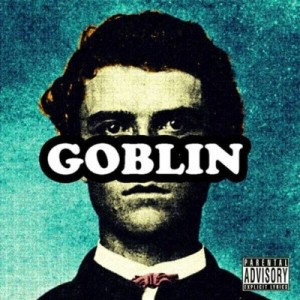

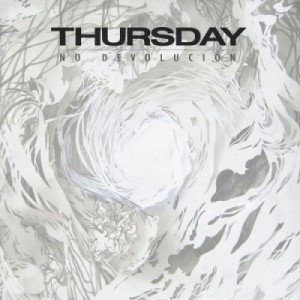

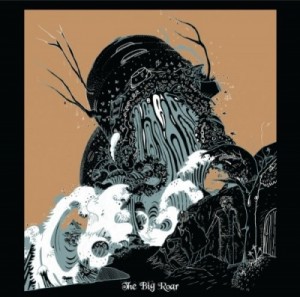
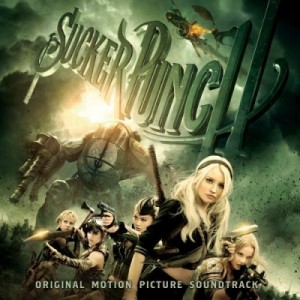
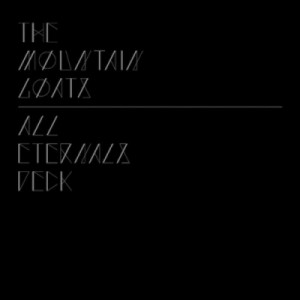

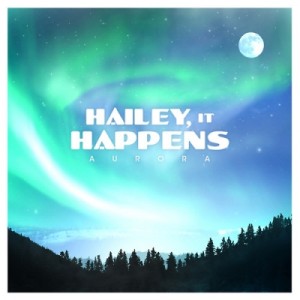

Connect